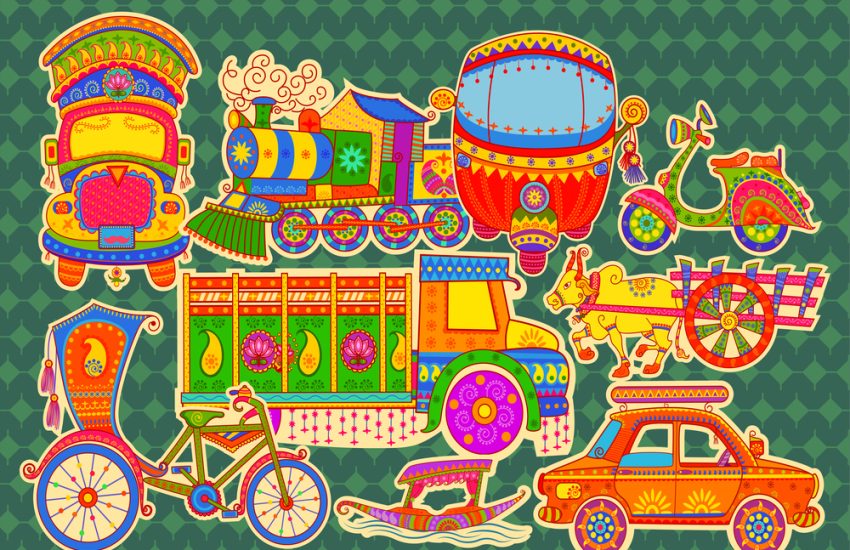Voluntourism, a blend of volunteer work and tourism, has gained popularity in recent years as travelers seek meaningful ways to give back to communities while exploring new destinations. In India, a country rich in cultural heritage and diverse landscapes, voluntourism offers travelers the opportunity to make a positive impact by participating in community-led initiatives, conservation projects, and social welfare programs. In this article, we delve into the world of voluntourism in India, exploring the various opportunities available to travelers and the transformative experiences that come with making a difference while traveling.
INDIAN VISA FOR MALTESE CITIZENS
Community Development Projects
India’s vast rural areas and marginalized communities often lack access to basic amenities such as clean water, sanitation, and education. Voluntourism programs focused on community development aim to address these issues by empowering local communities through infrastructure development, capacity building, and skills training. Travelers can participate in projects such as building schools, renovating community centers, constructing water wells, or teaching English and vocational skills to children and adults. By working alongside community members and local organizations, voluntourists can contribute to sustainable development initiatives that improve the quality of life for underserved populations and create lasting positive change.
Environmental Conservation Initiatives
India is home to a diverse array of ecosystems, including forests, wetlands, and wildlife reserves, which face threats such as deforestation, pollution, and habitat destruction. Voluntourism programs focused on environmental conservation aim to address these challenges by engaging travelers in activities such as reforestation, wildlife monitoring, and habitat restoration. Travelers can participate in projects such as planting trees, cleaning up beaches and rivers, or conducting research on endangered species. By volunteering alongside conservationists and local communities, voluntourists can contribute to the preservation of India’s natural heritage and biodiversity, ensuring a sustainable future for generations to come.
Social Welfare Initiatives
India’s urban centers are home to millions of vulnerable populations, including street children, orphaned youth, and elderly individuals living in poverty. Voluntourism programs focused on social welfare aim to support these communities by providing essential services such as food, shelter, healthcare, and education. Travelers can participate in projects such as serving meals at homeless shelters, organizing health camps, tutoring children in slum areas, or supporting vocational training programs for disadvantaged youth. By volunteering with local NGOs and grassroots organizations, voluntourists can make a meaningful difference in the lives of marginalized individuals and contribute to the social development of communities in need.
Cultural Exchange Programs
India’s rich cultural heritage and traditions offer travelers a unique opportunity to engage with local communities and learn about their customs, beliefs, and way of life. Voluntourism programs focused on cultural exchange aim to facilitate meaningful interactions between travelers and host communities, promoting cross-cultural understanding and appreciation. Travelers can participate in activities such as homestays, cultural workshops, language immersion programs, or traditional arts and crafts demonstrations. By immersing themselves in the daily lives of local families and communities, voluntourists can gain a deeper appreciation for India’s diverse cultural heritage and forge lasting friendships that transcend geographical boundaries.
INDIAN VISA FOR MARSHALLESE CITIZENS
Animal Welfare Initiatives
India is home to a wide variety of wildlife species, many of which are threatened by poaching, habitat loss, and human-wildlife conflict. Voluntourism programs focused on animal welfare aim to protect and conserve India’s wildlife through initiatives such as wildlife rehabilitation, conservation research, and anti-poaching efforts. Travelers can participate in projects such as caring for injured or orphaned animals at wildlife sanctuaries, conducting field surveys to monitor endangered species, or raising awareness about conservation issues in local communities. By volunteering alongside conservationists and wildlife experts, voluntourists can play a crucial role in safeguarding India’s natural heritage and ensuring the survival of its diverse wildlife species.
Conclusion
Voluntourism in India offers travelers a unique opportunity to make a positive impact while experiencing the country’s rich cultural heritage and diverse landscapes. Whether participating in community development projects, environmental conservation initiatives, social welfare programs, cultural exchange programs, or animal welfare initiatives, voluntourists can contribute to sustainable development efforts and create meaningful change in the lives of individuals and communities in need. By volunteering with local organizations and grassroots initiatives, voluntourists can forge deep connections, gain valuable insights, and make a lasting difference while traveling in India. As voluntourism continues to grow in popularity, it has the potential to empower communities, preserve natural resources, and promote cross-cultural understanding, fostering a more inclusive and sustainable approach to travel and tourism in India and beyond.
Read more: Investing in India: Unveiling the Untapped Markets

